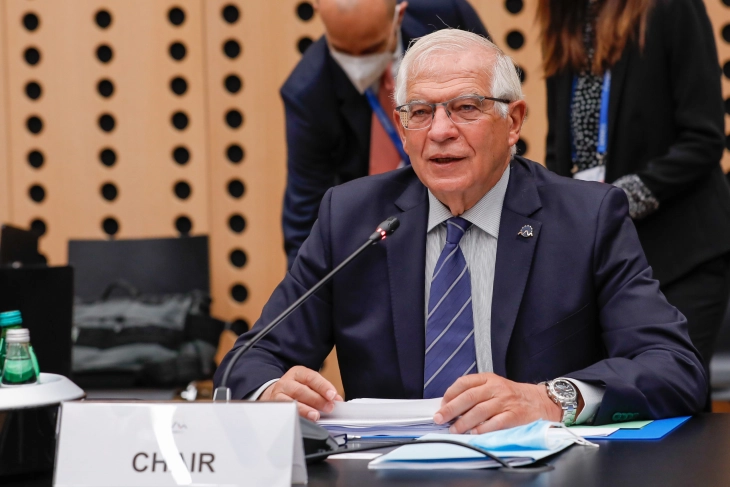Afghanistan defeat prompts EU defense soul-searching, troop debate

Kranj, Slovenia, 2 September 2021 (dpa/MIA) — The calamitous end to western intervention in Afghanistan triggered by US and allied troops' withdrawal underlines Europe's need to develop independent defense capabilities, top EU diplomat Josep Borrell said Thursday.
"The need for strong European defense is today more evident than ever," Borell told reporters at talks with the bloc's defense ministers in Slovenia.
Washington triggered the withdrawal of foreign troops from the Central Asian nation earlier this year, with NATO allies following suit. With most foreign troops gone, the radical Islamist Taliban seized power at a stunning pace two weeks ago.
In the wake of the bitter defeat and the chaotic end to a 20-year mission, the member states are thinking harder about creating an EU rapid-response standing force to be deployed in crises.
The original idea was for around 5,000 troops. But Slovenian Defense Minister Matej Tonin said Thursday that the unit could comprise up to 20,000 soldiers. Ljubljana holds the rotating EU presidency.
The United States secured Kabul airport for evacuations until Tuesday, and European states had to put a stop to their own evacuation missions sooner than they would have liked.
German Defence Minister Annegret Kramp-Karrenbauer said the European Union had been "dependent on the Americans."
The bloc has been trying to coordinate more closely on security in recent years. The underlying aim is to become a more independent foreign policy actor as the United States appears to be pulling back from the world stage.
The EU member states are therefore working on a new "strategic compass" – a common defense playbook that should help the EU to act in concert during crises. With 27 armies and governments, the bloc is often hamstrung by the need for quick consensus.
The final draft of this document should be ready in October or November, Borrell said.
Borrell said he hoped the Taliban's return to power would expedite European defense integration: "Sometimes there are events that catalyze history."
Kramp-Karrenbauer stressed that greater European independence was not about substituting NATO or close ties with the United States but about "making the West stronger in general."







